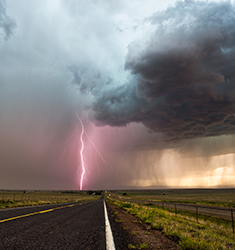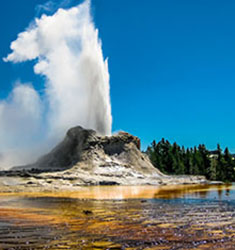Program Description
Geography is a unique field that bridges the physical and social sciences: geographers study not just natural Earth systems but also human societies, examining the interaction between the two. Geographers work with powerful technologies such as geographic information systems (GIS), digital Earth imagery (remote sensing), and spatial modeling. Geography also has a long-standing field tradition, often involving travel to spectacular locations. The University of Utah’s Geography program will provide you with a collaborative, integrated approach to understanding complex geographical challenges, such as climate change, globalization, sustainability, urbanization, and living with hazards. The program curriculum includes courses in environments, human geography, geographical analysis, cartography, and GIS; students then choose courses from the broader areas of physical and human geography, as well as electives from allied fields (such as atmospheric sciences or geology). Geography has a “No Student Left Inside” Initiative that encourages field work and labs in their courses to get technical, real world experiences. If you want to focus your studies on a particular area, you can pursue an emphasis in up to two of the following areas: Climate Change & Land Scape Dynamics, Population, Development & Sustainability, or Remote Sensing of the Environment.
The Student Experience
For academic enrichment and the chance to network, students can complete an undergraduate research project or internship: both options allow you to pursue an individual area of interest while also gaining valuable hands-on and professional skills. Additional involvement opportunities include the Geography Club.
Career Opportunities
After graduation, you will be prepared to pursue careers in a number of geography fields: physical, environmental, cultural and human, or GIS. Work as a hydrologist, oceanographer, cartographer, or surveyor in the public or private sectors, or be self-employed and work as a consultant for real estate development or land conservation. If you chose an emphasis area, put those skills to work and specialize as a climate change expert or GIS analyst. If you decide to continue your studies at the graduate level, you can pursue programs and subsequent careers in geography, GIS, or allied fields. You can also remain in academia as a professor or administrator.
More Info
- School of Environment, Society & Sustainability
- College of Social & Behavioral Science
- Department Advising
- U Career Success

 Geography
Geography


